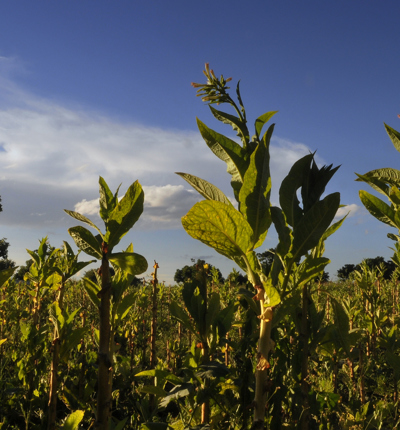
British American Tobacco and Imperial Brands
Leigh Day represents almost 2000 Malawian tobacco tenant farmers, including hundreds of children, in a legal action against British American Tobacco
Picture: David Levene, The Guardian
Leigh Day represent several thousand impoverished tenant tobacco farmers, their wives, children and other family members, all working on small tobacco farms in Malawi against British American Tobacco (BAT), Imperial Brands, their parent companies and subsidiaries . They allege that the tobacco companies are liable in negligence and have been unjustly enriched.
It is claimed that the companies’ actions, for the sake of maximising profits, has resulted over many years in the systemic exploitation of poor and illiterate workers, trafficked from the south of Malawi to tobacco farms in the central and northern regions.
BAT plc’s pre-tax profit in 2019 was more than £8.3 billion, and Imperial plc’s pre-tax profit was more than £1.6 billion. But the workers at the bottom of their supply chain in Malawi earn little to nothing for their work, living in terrible conditions trapped on the remote farms in serious food poverty.
The Malawi tobacco farmers accuse BAT and Imperial of knowingly facilitating unlawful and dangerous conditions, in which the farmers and their children have to build their own homes foraged from mud and thatch, live on a daily small portion of maize, work 6am to midnight seven days a week, and have to borrow money to be able to feed their families throughout the season.
As BAT and Imperial know, or ought to know, the farmers have no choice but to make their own children work from the age of three just to achieve the output needed to secure a marketable harvest.
Tobacco farmers are only paid after harvest, but after their farming costs and loans have been deducted from their minimal wages, they can be left in a vicious circle of indebtedness. On occasions it has been known for farmers to end up selling their daughters to clear debt. The farmers’ pitiful pay is also a result of the way the tobacco industry in Malawi works to keep the real price of tobacco below the country’s minimum government pricing meaning that the price paid for tobacco is some of the lowest in the world at less than $2 dollars per kilo.
BAT and Imperial are also accused of creating industry-wide schemes which claim to prevent child labour, forced labour and dangerous working practices, but which are only really whitewashing the true situation. The tenant farmers’ agreement to grow tobacco is frequently procured by the use of illegitimate economic pressure, violence or threats of violence, it is claimed.
For the entirety of the tobacco growing season from September to July, the farmers and their children work extremely long hours in extremely hazardous working conditions, with a high risk of personal injury. They live in insanitary and degrading living conditions and to endure grave food insecurity. They are subjected to hazardous and unsafe working conditions including being exposed to high levels of toxic pesticides and fertilisers without proper protective measures. They handle large amounts of wet tobacco leaves without proper measures to protect them from the high risk of nicotine poisoning (also known as Green Tobacco Sickness)
We argue that the conditions in which they live and work breach:
- The definition of “forced labour” under section 3 of the Malawian Employment Act No. 6 of 2000 and under Article 27(3) of the Constitution of Malawi
- The definition of “Unlawful compulsory labour” under Article 269 of the Malawi Penal Code
- The definition of “exploitation” in section 2 of the Malawian Trafficking in Persons Act (No. 3 of 2015)
- The definition of “forced or compulsory labour” and “exploitation” under the UK’s Modern Slavery Act 2015;
- The definition of “forced or compulsory labour” under Article 4 of the European Convention on Human Rights;
- and/or The International Labour Organisation’s definition of “forced labour”
We also argue that the Child Claimants’ compulsion to work on the Tobacco Farm violates:
- The Constitution of Malawi, the Employment Act 2000 and the Employment (Prohibition of Hazardous Work for Children) Order 2012 (the “Employment Order 2012”) and the Child Care, Protection and Justice Act 2012.
- The Child Claimants’ right under Article 32(1) of the United Nations Convention on the Rights of the Child to be protected from economic exploitation and from performing any work that is likely to be hazardous or to interfere with a child’s education, or to be harmful to a child’s health or physical, mental, spiritual, moral or social development
- The prohibition on the worst forms of child labour under the United Nations Convention Concerning the Prohibition and Immediate Action for the Elimination of the Worst Forms of Child Labour.

